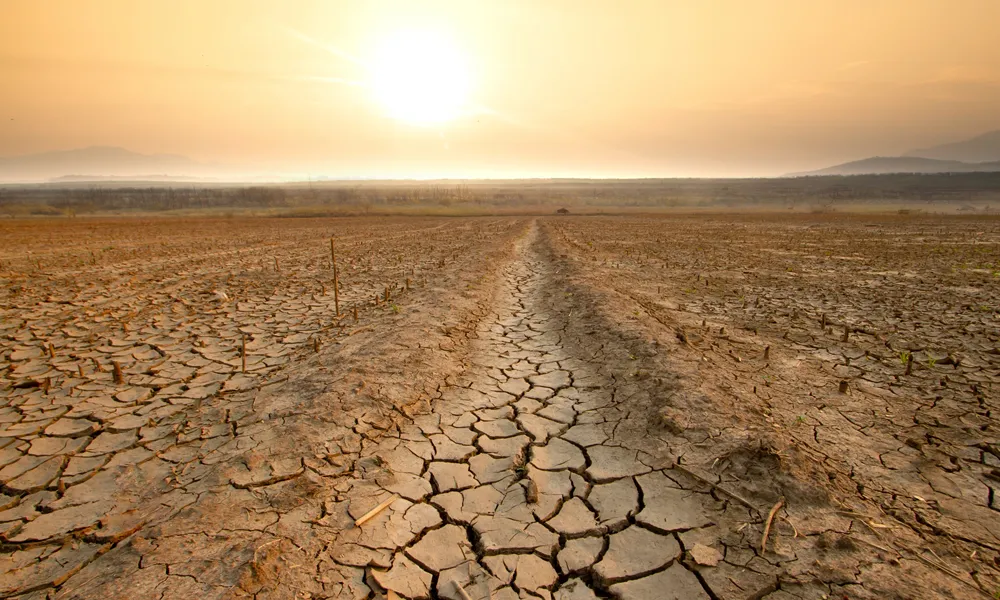Rising global heat is now killing one person every minute across the world, according to a major new report on the health impacts of the climate crisis.
The study finds that humanity’s continued dependence on fossil fuels is not only driving record heat but also fuelling toxic air pollution, wildfires and the spread of diseases such as dengue fever, with millions of preventable deaths each year resulting from the failure to tackle global heating.
Described as the most comprehensive report of its kind to date, it warns that the health impacts of climate change will worsen as political leaders such as Donald Trump roll back climate policies and fossil fuel companies continue to exploit new reserves.
Fossil fuel financing
Governments provided an estimated $2.5 billion per day in direct fossil fuel subsidies in 2023, researchers found, while workers lost roughly the same amount in income as extreme heat prevented them from working in agriculture and construction.
While a reduction in coal burning has saved around 400 lives a day over the past decade, and renewable energy generation is rising rapidly, experts say a healthy future is impossible if fossil fuel financing continues at current levels.
Dr Marina Romanello of University College London (UCL), who led the research, said: “This report paints a stark and indisputable picture of the devastating health impacts reaching every corner of the planet. The destruction of lives and livelihoods will continue to escalate until we end our addiction to fossil fuels.”
Millions of avoidable deaths
“We are witnessing millions of avoidable deaths every year because of our delay in mitigating and adapting to climate change. We see leaders, governments and corporations stepping back from their commitments, putting even more people at risk.”
According to the report, the rate of heat-related deaths has risen by 23% since the 1990s, even after accounting for population growth, reaching an average of 546,000 deaths per year between 2012 and 2021.
Professor Ollie Jay of the University of Sydney, a member of the research team, added: “That equates to roughly one death from heat every minute of every day of the year. It’s a truly shocking figure — and it’s still rising.”
He emphasised that heat stress can affect anyone and can be deadly - a danger that remains widely underestimated.
Billions of hours lost
Laura Clarke, Chief Executive of the environmental law organisation ClientEarth, commented: “We are living in the era of consequences. Heatwaves, floods, droughts and disease are no longer distant warnings - they are happening now. But with advances in science, legal action and social movements, accountability for the impacts of the climate crisis is no longer a matter of if, but when.”
The 2025 edition of The Lancet Countdown on Health and Climate Change led by UCL in collaboration with the World Health Organization (WHO) was compiled by 128 experts from more than 70 universities and UN agencies.
Over the past four years, the average person has been exposed to 19 days per year of dangerous heat, 16 of which would not have occurred without human-driven global warming, the report says.
It also records 639 billion hours of labour lost in 2024 due to high temperatures, equivalent to around 6% of GDP in the world’s least developed countries.
The continued burning of fossil fuels not only heats the planet but also causes air pollution responsible for millions of deaths each year. Wildfires, intensified by heat and drought, caused a record 154,000 deaths in 2024.
Govt subsidies
Droughts and heatwaves are devastating crops and livestock, leaving 123 million more people facing food insecurity in 2023 compared with the average between 1981 and 2010.
Despite these mounting impacts, governments handed out $956 billion in direct fossil fuel subsidies in 2023, the hottest year in recorded history, until it was surpassed by 2024. That figure far exceeds the $300 billion pledged at the UN Climate Conference (COP29) to support the world’s most vulnerable countries.
The United Kingdom provided $28 billion in fossil fuel subsidies in 2023, while Australia allocated $11 billion. Fifteen countries — including Saudi Arabia, Egypt, Venezuela and Algeria - spent more on fossil fuel subsidies than on their national health budgets.
Meanwhile, the world’s 100 largest fossil fuel companies increased production through to March 2025, putting the planet on track for three times the CO₂ emissions permitted under the Paris Agreement target of limiting warming to 1.5°C.
Commercial banks have also played a key role in this expansion: the 40 largest lenders invested $611 billion in fossil fuels in 2024 — the highest level in five years — compared with $532 billion invested in green sectors.
